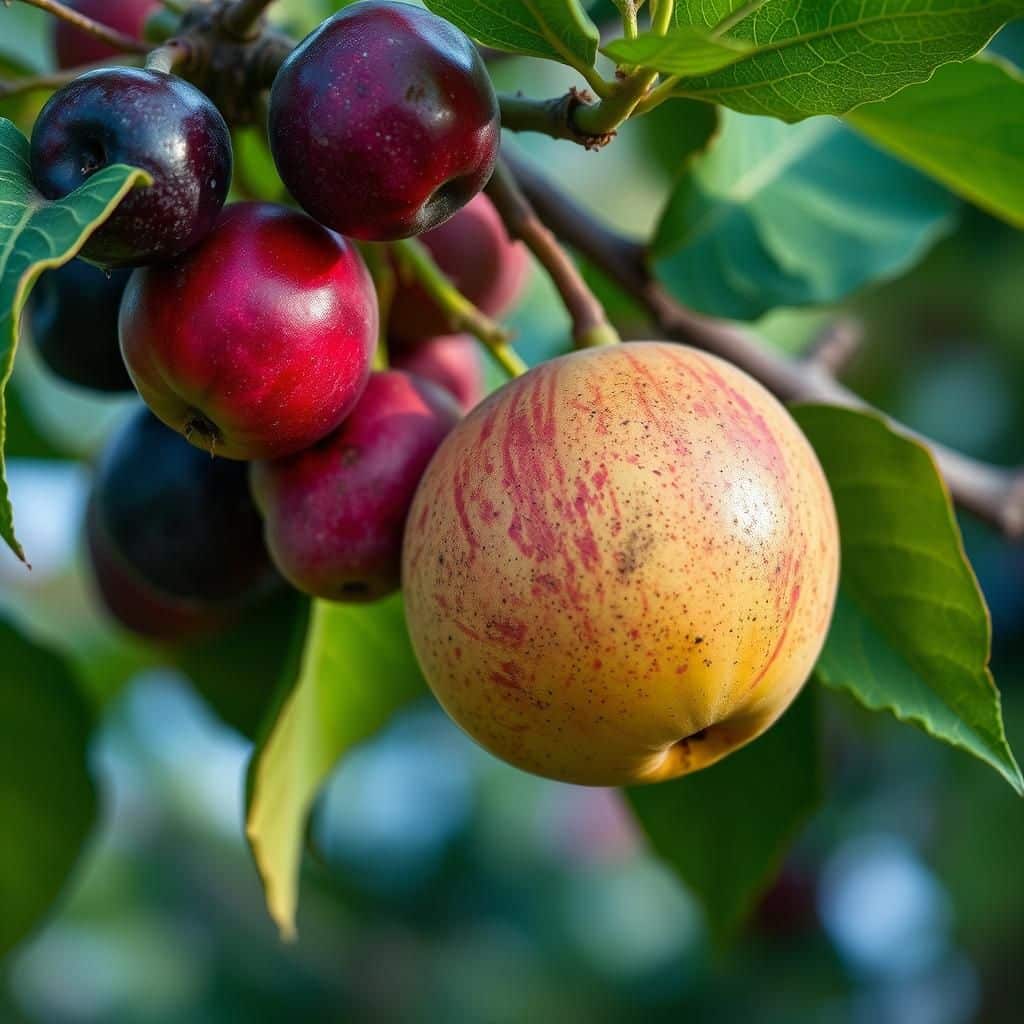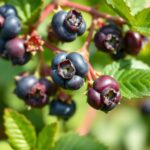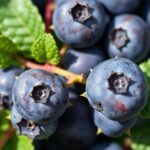Discover the Best Fertilizer for Fruit Trees: A Comprehensive Guide

When it comes to cultivating healthy and bountiful fruit trees, selecting the right fertilizer is crucial. A well-nourished tree not only produces delicious fruit but also contributes to a robust ecosystem. This comprehensive guide aims to explore the various types of fertilizers available, their specific benefits for fruit trees, and how to apply them effectively. Whether you're nurturing apple, peach, or citrus trees, understanding the nutritional needs of your plants is the key to success. Join us as we uncover the best fertilizers to enhance growth, yield, and overall tree health, ensuring a flourishing orchard for years to come.
Choosing the Best Fertilizer for Fruit Trees
When it comes to promoting healthy growth and maximizing yield in your fruit trees, selecting the best fertilizer is crucial. A well-balanced fertilizer provides essential nutrients such as nitrogen, phosphorus, and potassium, which are vital for the overall health of the trees. Organic fertilizers like compost or manure can enhance soil structure and microbial activity, benefiting root development. Additionally, granular fertilizers often release nutrients slowly, making them suitable for long-term feeding, while liquid fertilizers can provide a quick nutrient boost, especially during the growing season. Conducting a soil test can help you determine the specific nutrient needs of your fruit trees, ensuring that you choose a fertilizer that supports their unique growth requirements.
Essential Nutrients for Fruit Trees
Fruit trees require a variety of nutrients to thrive, with the most important being nitrogen, phosphorus, and potassium. Nitrogen promotes active growth and leaf development, essential for photosynthesis. Phosphorus is crucial for strong root systems and flowering, while potassium helps with fruit development and disease resistance. Additionally, micronutrients such as calcium and magnesium should not be overlooked, as they contribute to the overall health of the tree and improve fruit quality. Ensuring that your fertilizer contains a balanced ratio of these nutrients can lead to robust tree health and an abundant harvest.
Types of Fertilizers Available
There are several types of fertilizers available for fruit trees, including granular, liquid, and organic options. Granular fertilizers are easy to apply and provide a slow release of nutrients, making them ideal for long-term feeding. Liquid fertilizers, on the other hand, deliver nutrients quickly, which can be beneficial during the growing season when trees are actively looking for nourishment. Organic fertilizers, like bone meal or fish emulsion, not only supply nutrients but also improve soil health and encourage beneficial microbial activity. Choosing the right type depends on your specific needs and the growth stage of your trees.
When to Fertilize Your Fruit Trees
Timing is critical when fertilizing fruit trees to maximize nutrient uptake. Generally, the best time to fertilize is in early spring, just before the tree begins to bloom. This timing ensures that the nutrients are available when the tree starts its active growth phase. For certain types of fruit trees, a second application may be beneficial in late spring or early summer, particularly if the trees are showing signs of nutrient deficiency. It's also important to avoid fertilizing in late summer or fall, as this can promote new growth that may be vulnerable to winter injury.
Organic vs. Synthetic Fertilizers
The choice between organic and synthetic fertilizers can greatly impact your fruit tree cultivation. Organic fertilizers are derived from natural sources, such as plant or animal matter, and provide a slow release of nutrients while improving soil health over time. They also encourage beneficial microbes that create a sustainable ecosystem in the soil. In contrast, synthetic fertilizers deliver nutrients quickly and can be tailored to meet specific needs. However, they may lead to nutrient leaching and can potentially harm beneficial soil organisms. Understanding the advantages and disadvantages of each option is vital in making an informed choice for the health of your fruit trees.
Soil Testing for Optimal Fertilizer Use
Conducting a soil test is a vital step in determining the specific nutrient needs of your fruit trees. Tests can reveal deficiencies in essential nutrients, pH levels, and organic matter content in the soil. By analyzing the results, you can select a fertilizer that addresses the specific weaknesses of your soil, ensuring that your fruit trees receive the appropriate nutrients for optimal growth. Regular soil testing every few years can help track changes and refine your fertilization strategy to improve long-term fruit production and tree health.
| Nutrient | Function | Importance |
|---|---|---|
| Nitrogen | Promotes leaf growth and photosynthesis | Essential for overall tree health |
| Phosphorus | Supports root development and flowering | Critical for fruit set |
| Potassium | Aids in fruit development and disease resistance | Improves yield quality |
| Calcium | Strengthens cell walls | Prevents blossom end rot |
| Magnesium | Essential for chlorophyll production | Enhances photosynthesis |
What is the best fertilizer for fruit trees?

The best fertilizer for fruit trees typically contains a balance of macronutrients and micronutrients that promote healthy growth, fruit production, and overall tree health. Common choices for fertilizing fruit trees include organic options like compost, well-rotted manure, and specialized commercial fertilizers designed for fruiting plants. The optimal fertilizer usually has a N-P-K ratio that supports development, flowering, and fruiting stages.
Understanding N-P-K Ratios
The N-P-K ratio refers to the levels of nitrogen (N), phosphorus (P), and potassium (K) in fertilizers. These three nutrients play vital roles in fruit tree growth:
- Nitrogen: Promotes leafy growth and overall vigor.
- Phosphorus: Essential for root development and flowering.
- Potassium: Supports fruit quality and disease resistance.
Choosing a fertilizer with the right N-P-K ratio can effectively boost your fruit trees' health and productivity.
Organic vs. Chemical Fertilizers
When considering fertilizer options, you can choose between organic and chemical fertilizers. Organic fertilizers offer benefits such as improved soil health and increased biodiversity. In contrast, chemical fertilizers provide immediate nutrient availability.
- Organic fertilizers: Composted materials, fish emulsion, and bone meal.
- Chemical fertilizers: Quick-release products that provide nutrients rapidly.
- Integrated approach: Combining both types can yield the best results.
Each type has its advantages, so consider the needs of your trees and soil when making a decision.
Time of Application
The timing of fertilizer application is crucial to the success of fruit trees. The best times to fertilize are usually in early spring before new growth and in late summer after fruit harvesting.
See also:
- Early Spring: Prepares the tree for a vigorous growing season.
- Post-Harvest: Helps to replenish nutrients before winter dormancy.
- Soil Testing: Conduct soil tests to determine specific nutrient needs.
Proper timing ensures that trees receive nutrients when most needed for growth and fruiting.
Application Methods
How you apply fertilizer can influence its effectiveness. There are various application methods depending on the type of fertilizer used.
- Granular fertilizers: Spread around the base of the tree and watered in.
- Liquid fertilizers: Diluted and applied directly to the soil or leaves.
- Soil injections: Useful for delivering nutrients deep into the root zone.
Each method has its benefits, so choose one that best fits your situation and tree needs.
Signs of Nutrient Deficiency
It's important to recognize signs of nutrient deficiency in fruit trees to make timely adjustments to your fertilization strategy.
- Yellowing leaves: May indicate nitrogen deficiency.
- Poor fruit set: Commonly linked to low phosphorus levels.
- Small, poor-quality fruit: Often suggests inadequate potassium.
Monitoring your trees for these symptoms can lead to early interventions, improving the health and yield of your fruit trees.
Is 10-10-10 a good fertilizer for fruit trees?

10-10-10 fertilizer, which contains equal parts of nitrogen, phosphorus, and potassium, is often considered a balanced fertilizer. While it can be suitable for a variety of plants, including fruit trees, its effectiveness depends on several factors including the specific needs of the tree, soil quality, and the growth stage of the tree.
Understanding Nutrient Ratios
The nutrient ratios in fertilizers indicate the proportion of essential elements. In 10-10-10 fertilizer:
- Nitrogen (N): Promotes lush, green growth and foliage.
- Phosphorus (P): Supports flowering, fruiting, and root development.
- Potassium (K): Enhances overall plant health and disease resistance.
For fruit trees, all three nutrients are important but their requirements can vary significantly depending on species and growth stage.
Considerations for Specific Fruit Trees
Different fruit trees have different nutrient requirements at various stages of growth. Some may benefit from:
- A higher nitrogen ratio during early growth.
- More phosphorus while establishing fruit.
- Increased potassium as fruit ripens to enhance flavor and size.
Using 10-10-10 without considering these factors may not provide optimal results for every fruit tree.
Soil Health and Testing
Before applying 10-10-10, assessing the soil quality is crucial. Conducting a soil test can help determine:
- The existing nutrient levels present in the soil.
- The pH level which can affect nutrient availability.
- Any deficiencies or excesses that need addressing.
Using a balanced fertilizer like 10-10-10 may not be necessary if soil already contains all essential nutrients.
Application Timing and Method
When using 10-10-10 on fruit trees, timing and method of application are important.
See also:
- Apply fertilizer in early spring as trees start to grow.
- Use proper techniques, such as broadcasting or using tablets, to ensure even distribution.
- Avoid applying too much near the roots to prevent burning.
Proper timing will contribute to effective nutrient uptake and overall tree health.
Alternative Fertilization Options
While 10-10-10 can be beneficial in some cases, there are alternative fertilization options that may provide better results.
- Organic fertilizers that release nutrients slowly.
- Fertilizers formulated specifically for fruit trees that provide adjusted macronutrient ratios.
- Supplemental micronutrients that may improve fruit quality and tree vigor.
Exploring these options can lead to healthier trees and improved fruit production.
What feed is best for fruit trees?

To ensure the optimal growth and productivity of fruit trees, selecting the right type of feed is crucial. The best feed for fruit trees typically includes a combination of organic fertilizers, NPK fertilizers, and specific micronutrients. Fruit trees generally benefit from a balanced nutrient supply that caters to their growth stages, from root development to fruit production.
1. Organic Fertilizers
Organic fertilizers are a great choice for feeding fruit trees as they improve soil health and provide a slow release of nutrients. They include materials like compost, well-rotted manure, and bone meal.
- Compost: Enriches soil with beneficial microbes and nutrients.
- Manure: Provides a concentrated dose of nitrogen and other essential nutrients.
- Bone meal: A rich source of phosphorus, essential for root development and flowering.
2. NPK Fertilizers
NPK fertilizers are formulated to provide a specific ratio of nitrogen (N), phosphorus (P), and potassium (K), which are vital for fruit tree growth.
- Nitrogen: Promotes leafy growth and overall plant vigor.
- Phosphorus: Supports root development and enhances flowering.
- Potassium: Aids in fruit quality and enhances disease resistance.
3. Micronutrients
In addition to NPK, fruit trees also need various micronutrients such as boron, iron, and zinc for optimal growth. Deficiencies can lead to poor fruit development and reduced yields.
- Boron: Crucial for flowering and fruit set, especially in pome fruit.
- Iron: Prevents chlorosis and enhances overall health.
- Zinc: Essential for growth and improves the quality of the fruit.
4. Timing of Application
The timing of fertilizer application is essential for maximizing the benefits of feed for fruit trees. It’s best to adhere to seasonal changes and the specific needs of the tree.
- Spring: Early application helps boost growth as trees come out of dormancy.
- Summer: Additional feeding may be necessary for sustained fruit development.
- Fall: A slow-release fertilizer can prepare trees for winter and promote root growth.
5. Soil Testing
Before applying any feed, conducting a soil test can provide valuable insights into nutrient levels and pH balance, allowing for more precise feeding strategy.
- pH Testing: Helps determine if soil amendments are needed.
- Nutrient Levels: Identifies existing nutrient deficiencies or excesses.
- Soil Type: Guides the choice of feed based on drainage and nutrient retention capability.
Questions from Our Readers
What is the best fertilizer for fruit trees?
The best fertilizer for fruit trees is one that provides a balanced mix of nitrogen, phosphorus, and potassium. A fertilizer with an N-P-K ratio of 10-10-10 or 5-10-10 is generally recommended as it promotes healthy growth, enhances fruit quality, and strengthens the tree's overall health.
When should I apply fertilizer to my fruit trees?
Fertilizer should ideally be applied in early spring, just before the growing season begins. This timing ensures that the tree has the necessary nutrients available as it starts to produce new growth and sets fruit, allowing for better yield and quality throughout the season.
How often should I fertilize my fruit trees?
Most fruit trees benefit from fertilization once or twice a year, typically in spring and possibly again in late summer. However, the frequency can depend on the tree type, its age, and the specific soil conditions, so it's important to monitor the tree's health and adjust accordingly.
Can I use organic fertilizers for my fruit trees?
Yes, organic fertilizers can be an excellent choice for fruit trees, as they provide essential nutrients while improving soil health. Products like compost, aged manure, or fish emulsion are great options that not only nourish the trees but also promote a thriving ecosystem in your garden.
See also:

If you want to read more articles like Discover the Best Fertilizer for Fruit Trees: A Comprehensive Guide, we recommend you check out our Fertilise category.
Leave a Reply
Related Articles